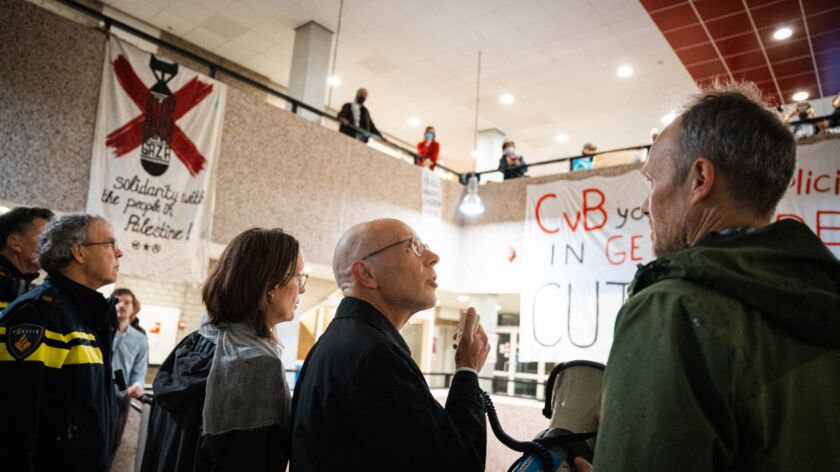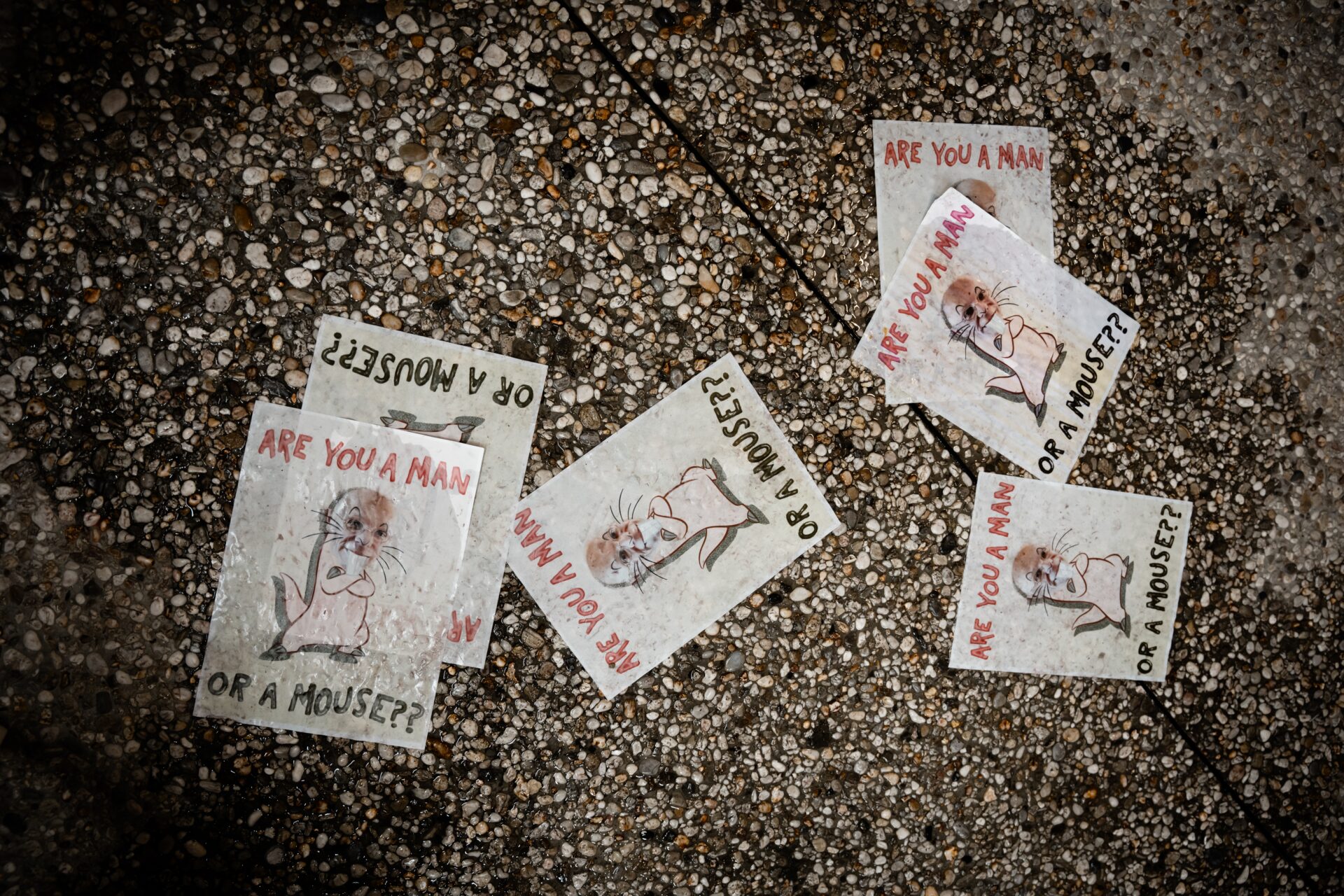How the gap between activists and the board of directors kept widening: ‘They are mainly concerned with their own supporters’
-
 Daniël Wigboldus tijdens de bezetting in het Erasmusgebouw. Foto: Johannes Fiebig
Daniël Wigboldus tijdens de bezetting in het Erasmusgebouw. Foto: Johannes Fiebig
The divide between protesting students and the Nijmegen Executive Board is not an isolated incident. Rhetoric experts Yvette Linders and Bé Breij see similar issues arising more frequently in society. On behalf of the Peitho expertise center, they will offer suggestions for returning to 'a good conversation' this Friday afternoon at LUX.
What began nearly a month ago as a friendly-looking tent camp on a fresh lawn in front of the Montessori building ended this weekend with a protest ban for pro-Palestinian activists. If anyone dares to protest collaborations with Israel outside a specially designated area in a parking lot, they risk a police response.
How did it come to this? Rhetoric experts Yvette Linders and Bé Breij from the Peitho expertise center observed frequent breakdowns in the dialogue between the board of directors and the activists over the past weeks. ‘It seems that both parties are not so much in conversation with each other,’ says Breij, ‘but rather catering to their own supporters over the other’s shoulder.’ This is a phenomenon the researchers see increasingly often in public debate.
Model Student
From day one of the campus protest, the demonstrators’ goals were clear; among other things, they demanded the severing of ties with Israeli institutions. The activists find it difficult to make concessions on this point, Breij analyzes, because there is a national protest movement underway. ‘Otherwise, Nijmegen would be the model student.’
‘The substantive conversation could have taken place much earlier’
Instead, Breij and Linders saw the actions in Nijmegen escalate. They also became increasingly personal, targeting the members of the Executive Board. Their names were chanted and written on moving boxes. The line of children’s shoes leading to the administration building further emphasized their ‘responsibility for genocide.’
Linders: ‘The demonstrators are heavily playing on pathos. They say, “You have blood on your hands.” As a result, the board feels: we cannot respond to such statements. You don’t want to appear as if you are easily manipulated.’

Therefore, this method of protesting is counterproductive, the researchers argue – at least if the goal is to change university policy. However, if the aim is to generate attention for what is happening in Gaza, the approach might be effective. Regardless, the consequence is that the board shifts to a ‘procedural mode.’ Breij: ‘It then primarily becomes about: this is allowed, and that is not.’
Wrong nerve
What doesn’t help is that both parties repeatedly struck the wrong nerve with each other. The announced committee to review international collaborations, for instance, is seen by the demonstrators as a delaying tactic by the board. ‘Not surprising,’ says Linders, ‘because the substantive conversation about the demands could have taken place much earlier.’
‘The board of directors must continue to make efforts to engage in dialogue with the activists’
Take, for example, the column by Rector José Sanders, in which she writes about listening broadly to the voices within the university. According to Linders, this provokes an almost allergic reaction among the students. ‘Because they don’t understand why that listening does not lead to action.’
After the defacement of Thomas van Aquinostraat 1 and the disbanding of the camp, an unbridgeable gap seems to have formed between the activists and the university administration. Difficult as it may be, Breij believes that the Executive Board must continue to make efforts to engage in dialogue with the activists. ‘As the party that holds the reins at the university, the Board should feel that responsibility more strongly than the students,’ says Breij.
‘An Open Mind: Engaging in Dialogue in Times of Polarization’ begins Friday at 14:00 in LUX. After lectures by communication scientist Noëlle Aarts and virologist Marc van Ranst, there will be a panel discussion with Mayor Hubert Bruls also in attendance. Bé Breij and Yvette Linders will conclude the afternoon with closing remarks.
Translated by Siri Joustra



